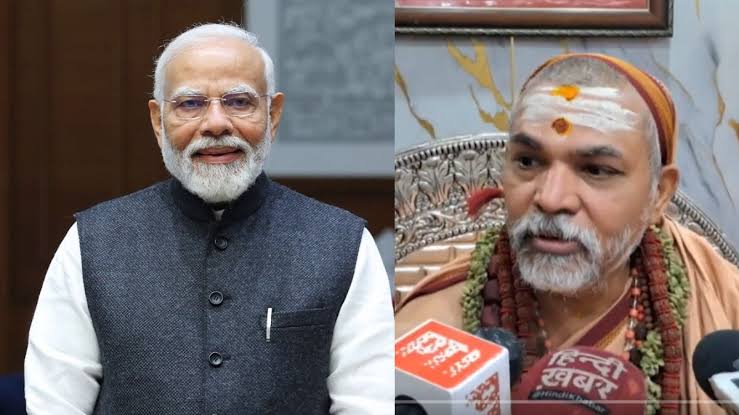Who Let the Pahalgam Terrorist In, and Who Let Him Escape? Who Turned a Blind Eye?
In the wake of the recent terrorist attack in Pahalgam, Jammu & Kashmir, a powerful and emotional statement by Shankaracharya Avimukteshwaranand Saraswati has sparked national debate. Expressing deep concern and anger, the spiritual leader demanded that those responsible for the attack be identified swiftly and face the harshest punishment. However, his statement went beyond condemnation—he raised questions that have unsettled many: Who allowed the terrorists to infiltrate such a sensitive area? Who turned a blind eye during the planning and execution of the attack? Was it mere negligence, or something more sinister?
The Shankaracharya’s words have become a wake-up call for the Indian government and its security apparatus. He openly questioned whether the authorities are genuinely committed to protecting Indian citizens from terrorism. For him, justice isn’t only about punishing the attackers—it’s about identifying and holding accountable those in power who failed to prevent such a tragedy. His message: until there is accountability within the system, such attacks will continue.
In a sharp extension of his critique, the Shankaracharya also targeted India’s stance on the Indus Waters Treaty. This historic agreement governs water sharing between India and Pakistan, yet, according to him, it remains unchanged despite Pakistan’s continued involvement in sponsoring terrorism. He pointed out that while the government frequently makes bold claims about blocking water to Pakistan, there is no real, actionable system in place to implement this. In his words, “The government is fooling the public with hollow statements.”
His remarks have reignited the long-standing debate around the relevance of the Indus Waters Treaty. At a time when India suffers repeated terror attacks, questions arise: Is India being too soft in its diplomatic approach to Pakistan? Should India withdraw from or renegotiate the treaty? How long can a peace agreement over water survive when peace itself is repeatedly shattered by bloodshed?
The spiritual leader’s emotionally charged statement has resonated deeply with people across the country. Social media is witnessing a storm of responses, with citizens demanding action—not just against the terrorists but also against the institutional lapses that allow such attacks to take place. This isn’t just about one incident in Pahalgam. It’s about a larger, recurring failure that continues to cost Indian lives.
This attack has once again brought India to a crossroads. How many more lives must be lost before decisive, long-term action is taken? Who is truly responsible—not just for the attack itself, but for the system that failed to stop it? These are the uncomfortable questions now echoing across the nation.

